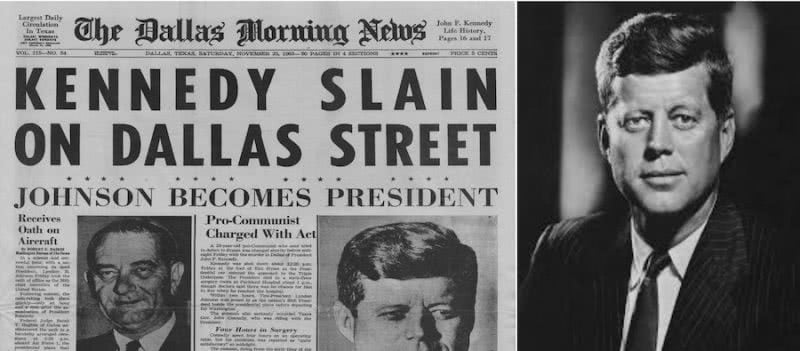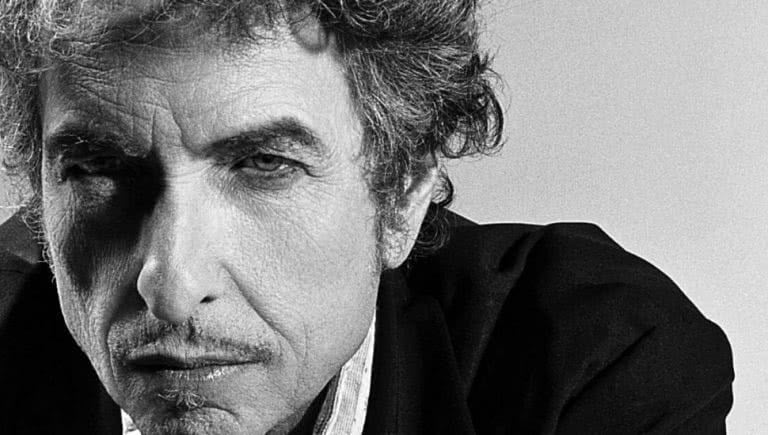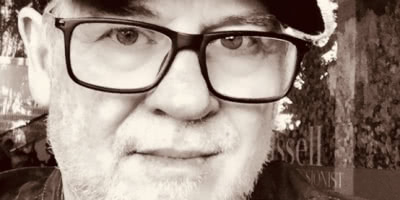An apocryphal jigsaw for the times or a Memento Mori for America under Trump?
In this time of COVID-19 and a social distancing populace washing hands and doing jigsaw puzzles, Bob Dylan released his first original song in eight years, the 17-minute epic ‘Murder Most Foul’ on 27 March 2020 with no fanfare, revealing it only as ‘an unreleased song we recorded a while back.’
Twas a dark day in Dallas, November ’63
A day that will live on in infamy
President Kennedy was a-ridin’ high
Good day to be livin’ and a good day to die
Listen to ‘Murder Most Foul’ below:

The song’s lyric opens with a familiar documentary style narrative of President John F. Kennedy’s assassination in Dallas, Texas in November 1963, spreading the map of Dealey Plaza and Elm Street in front of the listener, entertaining the conspiracists’ theories of multiple shooters and President Kennedy lured to his death by unknown forces:
Love Music?
Get your daily dose of metal, rock, indie, pop, and everything else in between.
Being led to the slaughter like a sacrificial lamb
He said, “Wait a minute, boys, you know who I am?”
“Of course we do, we know who you are”
Then they blew off his head while he was still in the car

As the lyric unfolds, Dylan increasingly intercuts the filmic narrative with fragmented references to the detritus of popular culture and Americana – its songs, books and film. These references act jumping off points for further research, analog hyperlinks that draw the listener out to further exploration, so the song doesn’t stand alone but rather acts as a touchstone for reflection on the plight of America both then and now.
‘Murder Most Foul’, it’s tempting to say, is a vast jigsaw puzzle for the times, but it’s far more than that. Greater than its few predecessors, ‘American Pie’,’ Sympathy for The Devil’, it’s a painterly masterpiece on the scale of Guernica, an impressionistic memento mori for America in the age of Trump. Dylan scholars and Bobcats will endlessly dissect it for years to come and it tempts the listener to do so, made easier in the Google age.
Dylan paints an America ripped apart, with Kennedy’s ‘don’t ask what your country can do for you’ twisted into a paean to capitalism:
When you’re down in Deep Ellum, put your money in your shoe
Don’t ask what your country can do for you
Cash on the ballot, money to burn
Dealey Plaza, make a left-hand turn
I’m going down to the crossroads, gonna flag a ride
The place where faith, hope, and charity died
Deep Ellum is the red-light district of Dallas, Dylan quoting Robert Johnson’s Crossroads to suggest that everything can be bought and that a vision of a more humane America was murdered along with President Kennedy at the crossroads of Houston and Elm streets:
Business is business, and it’s a murder most foul
The latter half of the song plays like an extended episode of Dylan’s Theme Time Radio Hour, with Bob exhorting the DJ Wolfman Jack to play a list of songs drawn from the past 100 years of mainly American music; folk, blues, rock ‘n roll, country and jazz:
Play me a song, Mr. Wolfman Jack
Play it for me in my long Cadillac
Play me that “Only the Good Die Young”
Take me to the place Tom Dooley was hung
Play “St. James Infirmary” and “The Port of King James”
If you want to remember, you better write down the names
Dylan links many of song requests to key people and events in the Kennedy narrative, sometimes clearly identified:
Play John Lee Hooker, play “Scratch My Back”
Play it for that strip club owner named Jack (Ruby)
Guitar Slim going down slow
Play it for me and for Marilyn Monroe
Others only hinted at in cryptic clues:
Play Etta James, too, play “I’d Rather Go Blind”
Play it for the man with the telepathic mind
Who might the man with the telepathic mind be? And who is Mr Mystery?
Play “Mystery Train” for Mr. Mystery
The man who fell down dead like a rootless tree
Dylan isn’t one for easy interpretation. The penultimate verse references Shakespeare:
There’s 12 Million souls that are listening in
Play “Merchant of Venice”
Play “Merchants of Death”
Play “Stella by Starlight” for Lady Macbeth
But ‘Merchant of Venice’ and ‘Merchants of Death’ aren’t songs, so Dylan may be accusing Kennedy’s killers of taking their pound of flesh, of being Masters of War, merchants of death, with blood on their hands like Lady Macbeth.
The song doesn’t fall into cheap sentimentality, plumbing the depths of sadness and horror that swept the nation in 1963. Without proselytising Dylan lays out a simple plea for a better America, where Faith, Hope and Charity are reborn.
Dylan couldn’t put it any clearer:
I said the soul of a nation been torn away
And it’s beginning to go into a slow decay
If you did as ‘Murder Most Foul’ exhorts and played all the 70 + songs listed, total listening time would be around 400 minutes + 17 for the song itself, so let’s say seven hours of listening, then you could perhaps piece together Bob’s jigsaw puzzle par excellence. I set out to do just that, persevered through the song list and its further lyrical references and this is some of what I discovered:
Play ‘Driving Wheel’:
Well I just came up on the midnight special how about that
My car broke down in Texas she stopped dead in her tracks
Just called to tell you that I need you, just called to tell you how I feel
I feel like some old engine lost my drivin’ wheel
America mourned John F. Kennedy, its drivin’ wheel, and sorely needs another.
Play ‘Marching Through Georgia’ and ‘Dumbarton’s Drums’
Bring the good old bugle, boys, we’ll sing another song;
Sing it with a spirit that will start the world along,
Sing it as we used to sing it, fifty thousand strong,
While we were marching through Georgia.
Across the fields o’ boundin’ heather
Dumbarton tolls the hour of pleasure,
A song of love that’s without measure
When Johnnie sings his sangs tae me.
Each song acts as a wormhole that you can jump through and explore, reach into and draw out its inferential meaning. I spent another 4 hours revisiting maps of Dealey Plaza, Deep Ellum, Dallas and the Trinity River, Parkland Hospital, the Texas Book Depository, the Grassy Knoll, eyewitness accounts and the contested frames of the Zapruder film:
Zapruder’s film I’ve seen that before
Seen it 33 times, maybe more
It’s vile and deceitful
It’s cruel and it’s mean
Ugliest thing that you ever have seen
The last line of the song is the request: Play “Murder Most Foul”. Given the only song with that title is this one, Dylan creates a serpent that swallows its own tail, an Ouroboros – symbolising the cyclic Nature of the Universe: creation out of destruction, Life out of Death. This is perhaps Dylan’s greatest achievement, a clarion call for rebirth and new hope in these calamitous times.
So do the jigsaw I challenge you, but remember the big picture is not on the box so the challenge is to build it, there will be millions of solutions but they should all call for a better, more humane America. That’s the undeniable truth of ‘Murder Most Foul’.


































